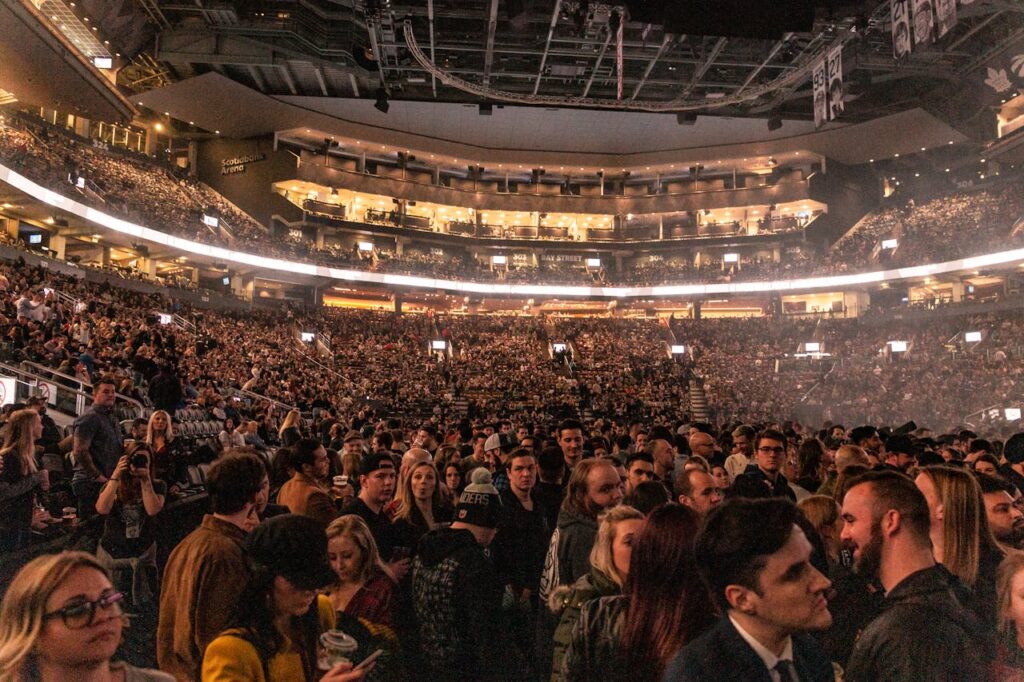Meet John, a hypothetical ticket broker who is passionate about live events. He loves the idea of making events accessible to fans, but as someone trying to turn a profit, he faces a major challenge: high platform fees. These fees can exceed 15% of a ticket’s sale price, squeezing his margins and forcing him to price tickets higher than he’d like. But John isn’t discouraged. Instead, he uses savvy strategies to stay profitable while keeping ticket prices affordable. Here’s how he does it—and how you can, too.
1. Dynamic Pricing for Maximum Flexibility
John knows that ticket prices fluctuate based on demand. For example, a concert by a trending artist might skyrocket in popularity after a viral moment, while tickets to a lesser-known comedian’s show might take longer to sell. Instead of sticking to static pricing, John uses dynamic pricing tools to adjust his listings in real time.
For a sold-out concert, he monitors the market and slightly undercuts competitors. When selling tickets to a local theater production, he prices tickets slightly above face value but adds discounts as the event date approaches. This ensures John stays competitive while turning a profit. Platforms like SeatGeek, with tools like Deal Score, help him understand when and how to adjust prices. (Ticket Tailor, Whop)
2. Bulk Buying and Season Ticket Magic
To avoid the high fees associated with individual ticket purchases, John invests in season tickets for sports teams. For instance, he purchases a season pass for a popular basketball team and resells tickets for games with high demand—such as matchups featuring a star player or a rivalry game.
Here’s how it works: If John pays $1,500 for a season ticket covering 20 games, he can price tickets for marquee games at a premium while keeping prices for less popular games closer to face value. This strategy allows him to distribute costs across multiple sales, keeping prices reasonable for fans while earning a solid return. (Whop)
3. Choosing the Right Platforms
John knows that where he sells his tickets matters. Some platforms charge sellers exorbitant fees, cutting deeply into his profit. StubHub, for instance, charges a flat 15% commission on all sales. Instead, John uses SeatGeek, which charges a lower 10% fee. By carefully selecting platforms with better fee structures, John reduces his overhead and passes savings on to buyers.
For events with lower competition, John also explores niche platforms or social media marketplaces, avoiding fees entirely. While these require extra effort in vetting buyers, the cost savings are worth it. (Whop)
4. Targeting Underserved Markets
John knows that not all events are created equal. Instead of competing in oversaturated markets (like major pop concerts), he focuses on underserved categories such as theater productions, niche festivals, and celebrity speaking tours. For example, he recently bought tickets for a limited-run Broadway play. These events attract dedicated audiences but often lack the fierce competition of mainstream concerts, allowing John to offer fair prices while maintaining profitability. (Whop)
5. Reducing Overhead Costs
To keep his business running smoothly, John looks for ways to cut costs. He uses inventory management software to track his tickets, ensuring he never overpays or holds unsold inventory. He also uses marketing strategies like posting deals on social media, which costs nothing compared to platform advertising fees. By keeping operational expenses low, John can offer lower prices to fans while still earning a fair margin.
A Better Market for Fans and Brokers
John’s approach shows that ticket resale doesn’t have to mean exorbitant prices for fans. By leveraging dynamic pricing, optimizing platform usage, and focusing on strategic purchases, brokers like John can turn a profit while ensuring fans have access to affordable tickets.
If you’re thinking of entering the ticket resale game, consider these strategies—and remember, keeping fees low and fans happy is a win-win for everyone.



